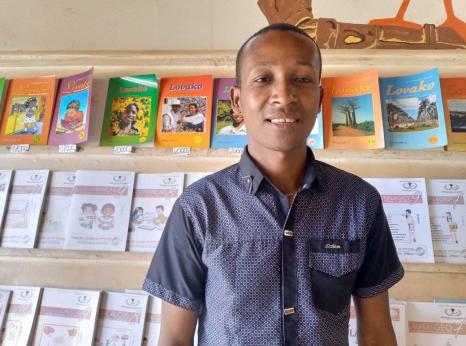Madagascar: Teacher Released But Conviction Upheld

Jeannot Randriamanana is a 38-year-old public secondary school teacher living and working in Mananjary, in the region of Vatovavy, in the center east of Madagascar. He is a father of four children aged 18, 14, 9 and 4 years old. In addition to his work as a public schoolteacher, he also works as a communication officer for the local branch of the NGO, Independent Observatory of Economic, Social and Cultural Rights in Madagascar (Observatoire Indépendant des Droits Economiques, Sociaux et Culturels à Madagascar - OIDESCM). He is passionate about human rights, mainly concerned with the right to information and good governance. He has been posting on his social media about the poor state of school infrastructure in the district of Nosy Varika since December 2021. In December 2021, he exposed that he had been targeted for harassment and intimidation for denouncing cases of corruption on his social media account. Jeannot mentioned that he has received threatening messages on his Facebook from anonymous profiles.
Cyclones Batsirai and Emnati hit Madagascar on 5 and 23 February 2022. They resulted in landfalls in the districts of Nosy Varika and Mananjary, prompting a global call for international humanitarian aid. At the end of February 2022, Jeannot Randriamanana, started to denounce on social media that the local population had not received any of the humanitarian aid promised by the local authorities.
On 2 March, the Public Prosecutor brought charges against Jeannot Randriamanana for defamation and humiliation of members of Parliament and public servants and identity fraud. He was also charged with fraudulent use of the function of a journalist (identity fraud), solely for having shared information on his social media, as he never claimed to be a journalist. He was arrested on the same day and provisionally released two months later, on 10 May.
Amnesty International is concerned about the Court of Appeal of Fianarantsoa’s decision to uphold Jeannot Randriamanana’s conviction as it reinforces a pattern of harassment and judicial persecution of whistleblowers and human rights defenders in Madagascar. The Malagasy authorities misuse the criminal justice system to keep the accused whistleblowers and human rights defenders in judicial limbo. Thus, their human rights are severely restricted, including the rights to work and movement. Clovis Razafimalala, an environmental human rights defender who repeatedly denounced the illegal trafficking of rosewood and other timber in Madagascar, has been a victim of intimidation and harassment by Malagasy authorities since 2016, with no closure on the case.
This is all part of a wider pattern of harassment and intimidation of whistleblowers and human rights defenders and repression of the rights to freedom of expression and information in Madagascar. However, whistleblowing is essential for any country that is genuinely committed to transparency, accountability and respect for human rights and the rule of law.